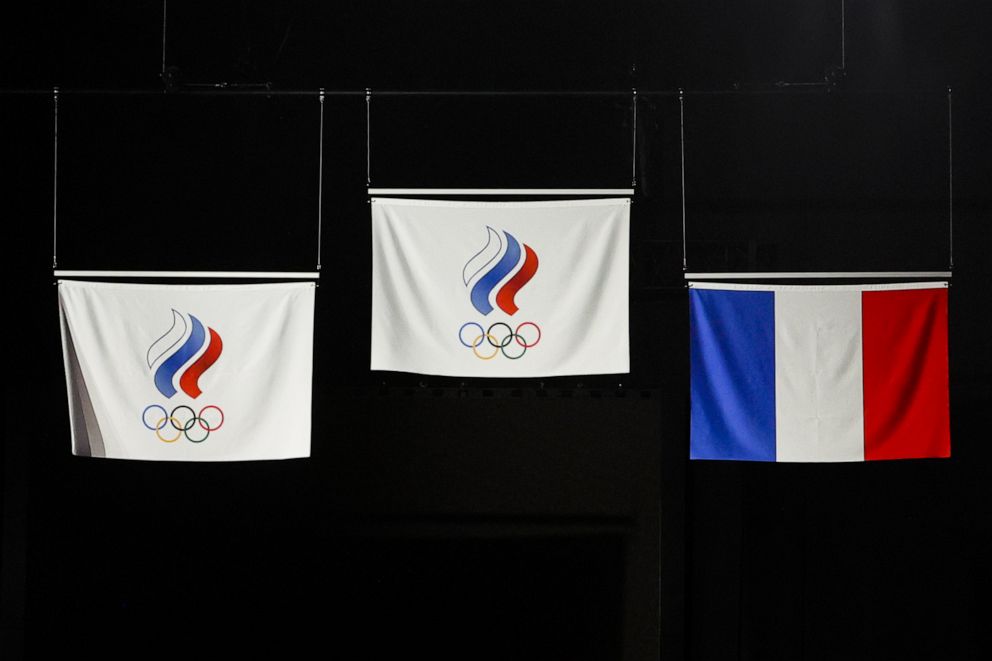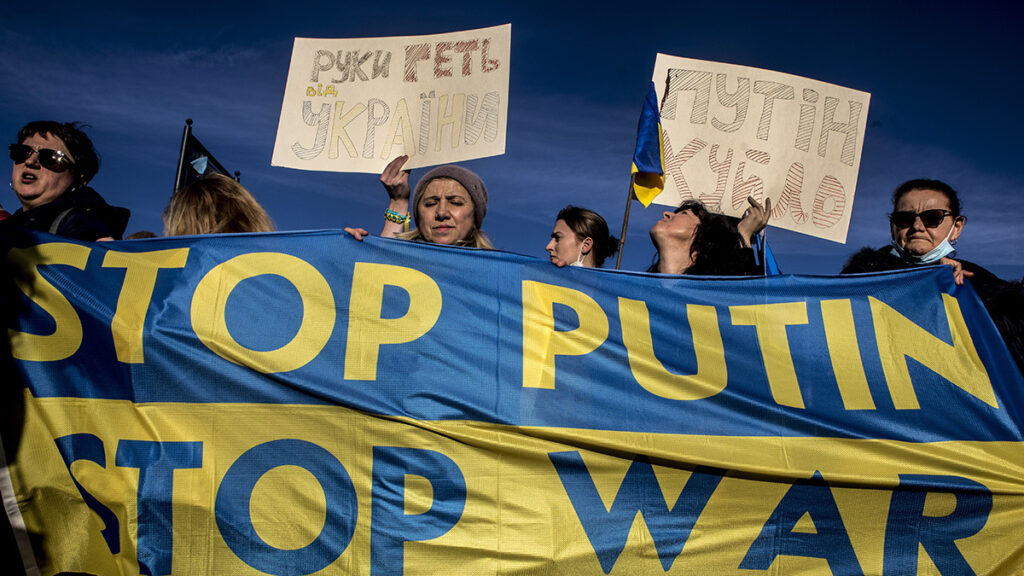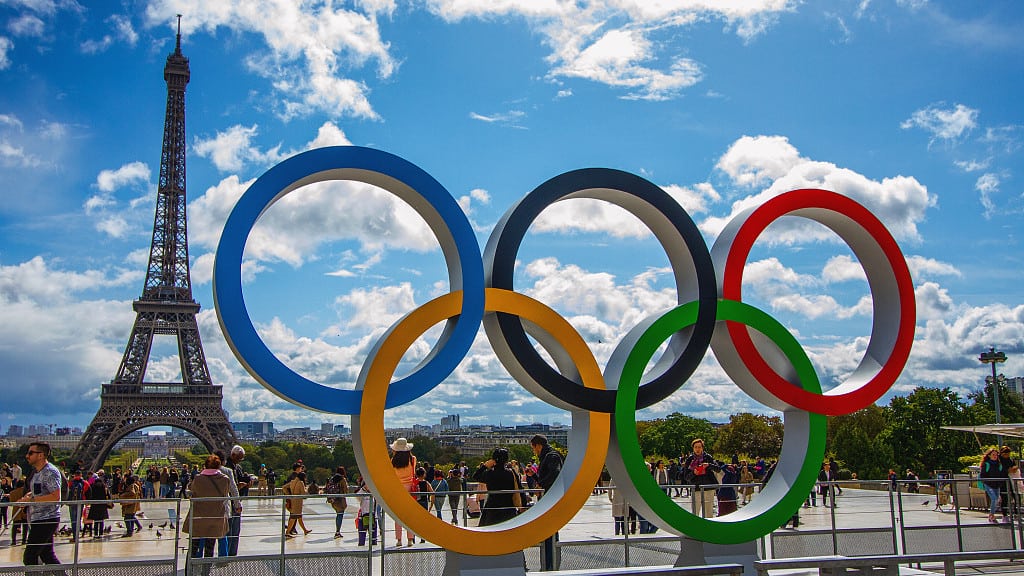Member Insights: Paris Olympic Games Face New Boycott Threat over Russia
August 16, 2023
In this week’s Member Insight piece Olympic Games advisor Michael Pirrie says planning for the Paris Olympic Games remains on target, despite Russia’s brutal war which has divided the Olympic Movement over plans for neutral athletes from the warring nation to attend the French Games.
INTRODUCTION
In the latest and most direct threat to the Paris Olympic Games, the Ukraine Government has declared it is ready for a possible boycott of the Paris Games if athletes from Russia and Belorussia participate.
The warning was carried on the Telegram channel of Ukraine’s Prime Minister, Denis Shmygal, and comes amid efforts by the IOC to establish a passageway for so called ‘neutral’ athletes from Russia and Belorussia to compete in Paris.
“States that stain themselves with the blood of Ukrainians cannot participate in the Olympic Games…we are ready to boycott the Olympic Games in Paris, if Russia and Belarus are allowed to participate in the competition,” according to the Prime Minister’s warning.

The president of the National Olympic Committee of Ukraine had previously indicated that Ukraine athletes would withdraw from Paris 2024 if Russia and Belorussia were permitted to compete under their national flags.
The ongoing murderous war in Ukraine has further darkened the mood in the international community towards Russia and participation in global events.
This has led to a rethinking of sports neutrality, and whether a case can be made for athletes from a nation that has threatened nuclear annihilation, and a leader wanted by the International Criminal Court for kidnapping children from Ukraine.
The new Olympic boycott warning highlights how central the war in Ukraine is becoming to Paris preparations.
The latest developments also highlight how the scope for negotiation over the war and the Games is narrowing, with concerns also that the presence of athletes from Russia at the Games would normalise war in sports settings.
For well over a century, the Olympic Games has been a constant presence in an ever changing world. Now that world is changing the Olympic Games.
The fall-out from the first war in Europe this century continues to spread beyond Ukraine’s battlefields and gravesites, jolting the international economy, security arrangements, energy and food supplies and other key sectors.
Russia’s brutal war is now having its greatest impact on the Olympic Movement in the countdown to the Paris Games.
The Paris spectacle will be the first post pandemic Olympics following Beijing, and while winter and summer Games are seasonal opposites, the two are linked by the war, which began after Russia moved troops into invasion position during the Beijing Olympics.
OLYMPIC CRISIS
Russia’s on-going war in the countdown to the Paris Games has taken world sport into unchartered territory.
The military war has become battle of politics, morals and ethics for world sporting leaders and organisations as the international community wrestles with the horror of Russia’s invasion and possible presence at the Paris Games.
While the IOC has delayed its final decision, the ruling on Russia will carry enormous implications and shape the Paris Games and future of world sport.
The matter has divided Olympic nations, continents, sports leaders, international community, and governments, on which the Olympic Movement depends.
“This is the biggest external crisis the Olympic Movement has faced since the (1980s) boycotts,” according to one senior IOC member – those boycotts were triggered by the former Soviet Union’s invasion of Afghanistan in 1979
The battle over Russia’s Paris inclusion is also a battle between the old Olympic Movement of Europe – the cradle of Olympic sports and values, where opposition to Russia is most committed and concentrated – and the new Olympic movement.
This includes sports power brokers and regions seeking greater control of the Olympic movement and world sport, led out of Asia and China, strongly supportive of Russia’s presence in Paris.
While sport has long attempted to portray competition as separate from politics, Russia’s war has become a tipping point for international sport and society.
“Sport is not detached from this invasion and cannot remain passive to what is happening now,” the Norwegian Ski Federation said in a statement shortly after the outbreak of war.
“We share their suffering,” IOC President Thomas Bach said earlier in the conflict.

RUSSIA’S OLYMPIC TROJAN HORSE
The battle over the Paris Games has generated difficult questions about whether a world sporting event, dedicated to peace, can justify a relationship with a nation accused of some of the worst crimes against humanity – even if once removed through individual neutral athletes.
This has raised life and death dilemmas and scenarios not anticipated nor prepared for by sporting bodies.
The Paris pathway has also become a communications minefield for Olympic leaders, arguing for neutrality while also highlighting solidarity with Ukraine’s athletes, leaders, and international allies firmly opposed to Russia’s presence in Paris.
Strong doubts and suspicions remain about the credibility of the case for Russia’s Olympic return and fairness for Russia’s victims as the Paris countdown continues.
These include concerns Russia will use the cloak of neutrality as a Trojan Horse to get athletes back on the Olympic stage in Paris, while organising mass murder war operations just three flying hours away in Ukraine.
For many in the international community, ending the war is now more urgent than sports neutrality as more cemeteries and news bulletins are filled with victims of the war.
Finding a solution to the Paris Olympic Games crisis is complex and compromised by Russia’s corrupt political sports system.
Few governments have as close a relationship with their Olympic administrators, programs and athletes as the Russian Olympic Committee has with the Putin regime.
Russia’s Olympic narrative – that Ukraine is a special military operation forced on the Kremlin, and therefore sports involvement should continue as normal otherwise this would be a major blow to the Olympic ideals – has been widely discredited.
While a generation of young Ukrainians with sporting dreams and aspirations represent their nation in war zones instead of sports venues, Russia’s athletes lead privileged lives on standby for Olympic duties. Vulnerable and disadvantaged young Russian men lacking athletic talent in contrast are sent by the Kremlin to their early deaths in a war without purpose.
Meanwhile, one of Russia’s most celebrated athletes of recent times, Olympic gold medal-winning pole vaulter, Yelena Isinbaeva, who has ties to Putin and holds the honorary rank of major in the Russian army, is alleged to be living in a secure luxury home in Spain’s Canary Islands.
Although neutrality provides a pathway back to Olympic competition for Russia, there may be no way back for Ukraine’s athletes after Paris if Putin succeeds in his mission to conquer and destroy Ukraine.

THE DEATH OF SPORT
Ukraine’s playing fields have become killing fields, stained with the blood of athletes – Russian troops are estimated to have killed many Ukrainian athletes, according to multiple reports.
This death toll is more than the size of most national Olympic teams that will compete in Paris.
“The death and destruction we have seen in Ukraine over the past year, including the death of some 185 athletes, have only hardened my resolve on this matter,” Olympic champion and World Athletics president, Seb Coe, said earlier this year.
“The integrity of our major international competitions has already been substantially damaged by the actions of the Russian and Belarusian governments through the hardship inflicted on Ukrainian athletes and the destruction of Ukraine’s sports system.
“Russian and Belarusian athletes, many of whom have military affiliations, should not be the beneficiaries of these actions.”
Russia’s war has now killed more than 260 athletes and destroyed more than 360 sports facilities, according to recent Ukrainian government estimates.
The campaign for neutrality, led by the IOC president, was designed to create safe spaces for athletes to compete at major events in an era of rapid geopolitical change and uncertainty.
While controversial, the efforts have cut through, moving sport independence on to the international agenda, with the Group of Seven (G7) leaders issuing a statement earlier this year “fully respecting the autonomy of sporting organisations.”
The campaign has sparked a global conversation about the roles and responsibilities of sport in supporting the international community against Russia’s threats to human life and global stability.
While Putin had hoped opposition to his war would fade, the international community has remained firmly centred on sanctions to weaken Russia – from banking and finance to book publishing.
PUTIN’S OLYMPIC GOAL
Sporting bans have also been important, helping to reduce the presence and visibility of Russian teams and flags on the world sports stage, a key target of the Kremlin’s domestic and international relations strategy.
Putin needs the Olympic spotlight more than ever, according to Russia watchers, as domestic support shows some stress, highlighted by the recent threatened coup.
Putin’s personal involvement in pushing for athletes from his nation to attend the Paris Games also highlights the importance of the Olympics to the Kremlin’s search for international relevance and recognition from the Games.
This has alarmed Ukraine’s leaders and international support base, fearful that a crucial weapon in the sanctions armoury will be lost if athletes from Russia are allowed to attend the Paris Games
“If Russia is not banned from the Olympics, this will be presented to the Russian people as a victory for Putin,” according to a former military officer of a western nation supporting Ukraine.
“Any victory, at any level with neutral athletes is a victory for Putin.”
MAKING HISTORY
To remain on the right side of history, sport must make a meaningful contribution to the international sanctions effort.
FIFA and World Athletics, the two biggest and most influential world and Olympic sporting federations continue to sideline Russia at their major events.
While World Athletics has excluded Russian teams from its world championships, FIFA blocked Russia from qualification for the World Cup in Qatar late last year and the Women’s World Cup currently underway in Australia and New Zealand – the world’s two biggest sporting events along with the Olympics and Paralympics.
Challenges to the bans by Russia’s governing bodies were rejected by the Court of Arbitration for Sport (CAS).
PARIS EMERGES FROM SHADOWS OF WAR
The tensions and uncertainty over Russia’s war and Games participation have not delayed progress on the Paris Games.
The host city is on schedule to follow London as the second city to host the Summer Olympic Games on three occasions.
Paris passion and pride are building, with a recent survey showing more than 70 per cent of French people support the Games, fuelling high demand for tickets, a key indicator for successful Games.
While preparations for venues, transport, accommodation, ceremonies and torch relay were on schedule, a final decision on the possible involvement of Russian athletes will be needed as soon as possible to finalise key Games services and operations.
This includes finalisation of places and locations for athletes in the all important competition and training schedules, Olympic Village and other key venues and programs.
The decision will also be essential for final security overly arrangements, with the presence of athletes from Russia regarded as a heightened security risk.
“The presence of athletes from Russia, even neutral athletes, would definitely increase the chance of civil unrest and protest activity,” according to a high-ranking security official involved in planning for the London Games.
CONCLUSION
While attempts to navigate a Paris pathway for neutral athletes continue, the horrors of the war have made it difficult to remain neutral.
Without concessions from Russia, which seem unlikely, a negotiated diplomatic settlement to the war does not currently appear to be on the horizon before the Paris Games.
The challenge for the IOC ultimately will be to find enough common ground for Ukraine and Russian leaders, athletes and the international community.
This will be necessary for the Olympics to proceed in a manner that protects athletes from all participating nations as well as the integrity of the Games experience for spectators, visitors, participants and the host city and nation.


